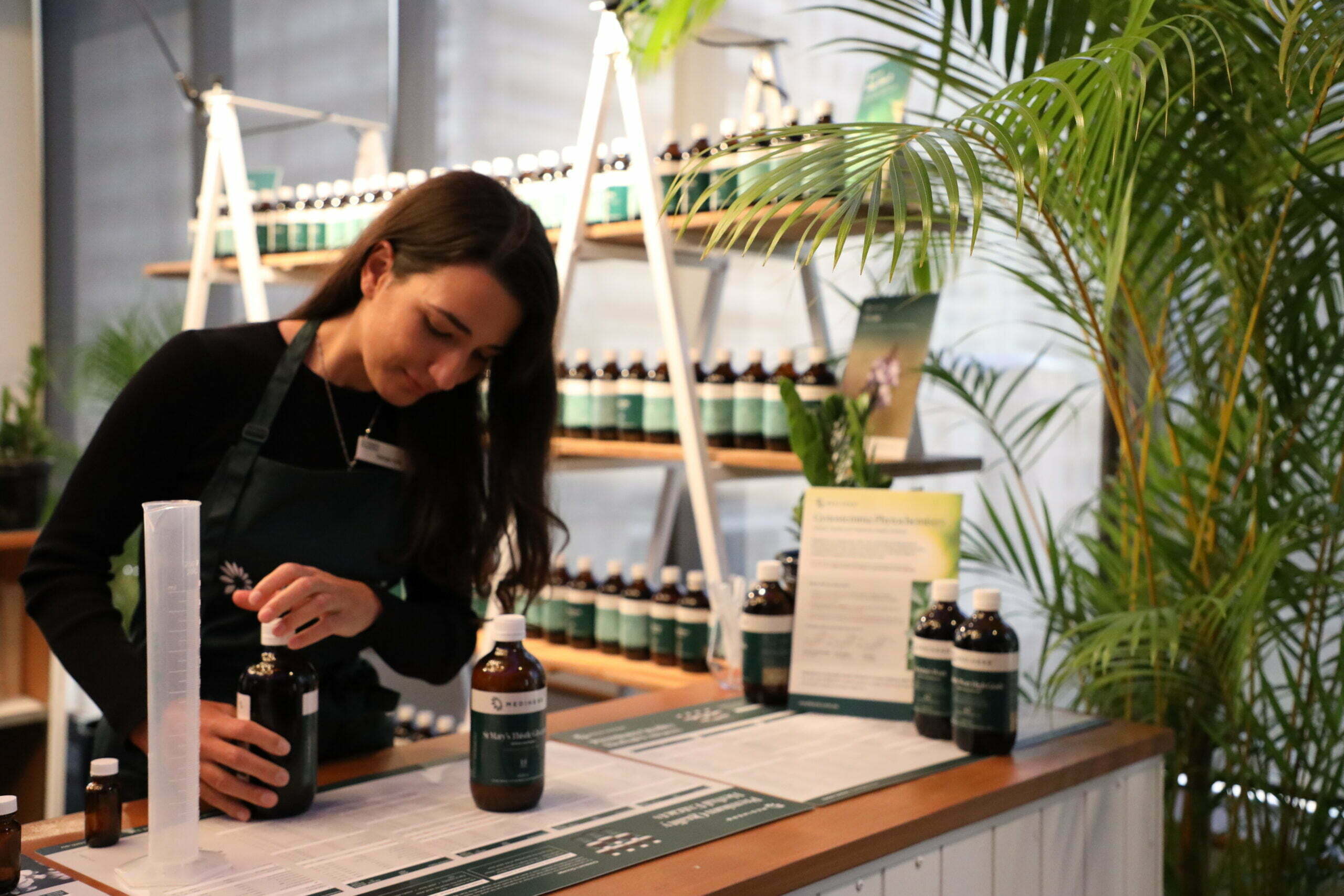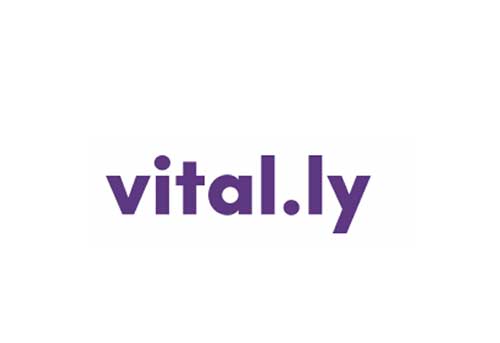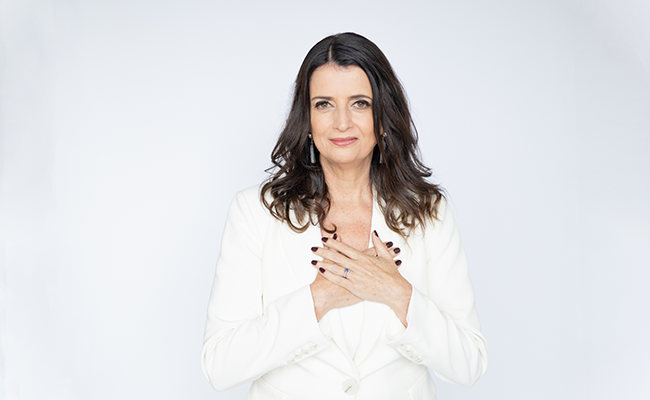The Feel Good Diet
A Patient Story
The doctors have told you they’ve done everything they can. Arthritis doesn’t run on your partner’s family and the painkillers are reducing their quality of life. Your child has a constant tummy ache, but the tests reveal nothing.
Intuitively, you know, more can be done, but you don’t know where to go for help. Welcome to a patient’s story. The podcast that helps you understand what you can do to improve health by hearing from others that have had similar experiences, and have found a sustainable solution.
My name is Daniel Baden. I’ve been a Naturopath for nearly 35 years. Over this time, I’ve seen people transform into strong and resilient beings once they understand the importance of taking ownership of their health.
One of the pillars of natural and holistic medicine is to help teach people how to look after themselves and build resilience.
Modern medicine has so much to offer, but it has its limitations. Over 1000s of years and across most cultures, natural and holistic medicines have developed a proven approach to health. The philosophies and therapies can work alongside modern medicine, or really just stand alone.
Natural and holistic medicine continues to grow rapidly around the world simply because of reliable and reproducible outcomes.
If you are interested in health for yourself, or on behalf of a family member or friend, the Podcast: A Patient’s Story will help you to understand what is possible. To doctors and other health professionals, the story’s told will give you an understanding of the benefits of natural and holistic medicine and why some of your patients are choosing this option.
Please enjoy a patient’s story podcast.
Spotify: https://open.spotify.com/show/2CaXeMUyJarMLD4VWJXmnI
Apple: https://podcasts.apple.com/us/podcast/a-patient-story/id1654149965
iHeartRadio: https://www.iheart.com/podcast/269-a-patient-story-104524780/
Or find other sources: https://www.apatientstory.com
Treating Stress and Burn out with Natural Medicine
Do you often find yourself avoiding social gatherings because you are too tired? Or spending the weekend in bed? Or maybe you are wondering why the coffee isn’t working anymore? These are classic signs of burn out that we see all the time in clinic. Let’s get into the nitty gritty.
Persistent stress over time leads to burn out, which can manifest as a combination of emotional and physical disturbances. Naturopaths use natural medicine with holistic diet, and lifestyle approaches when treating burn out.
So, what is burn out?
Burn out is a syndrome or collection of symptoms that present because of prolonged stress. It’s more than just feeling a bit tired. The syndrome describes a state of depletion both mentally and physically, as the body adapts to ongoing stressors. Symptoms may include fatigue, anxiety, depression, poor sleep, poor immunity, musculoskeletal pain, and general feelings of inadequacy (to name a few).
Often the source of stress is the workplace and much of the research around burn out looks at stressful occupations in the health sector such as nursing, or doctors in emergency care or on night shifts, although stress can come from any aspect life. It might be that you don’t have enough time for self-care, or that you have kids, work, study, and or caring for an elderly parent. Stress can come in many forms, that we don’t always recognise as stress. Prolonged sitting at the computer is a stress on the body. Even the word stress can make us feel stressed! It’s how we adapt to it that is important.
The Stress Highway
The hypothalamic–pituitary–adrenal (HPA) axis is the highway between the brain and the adrenal glands that regulate the stress response. The main hormone that results from this pathway, is cortisol. Initially, during the first stages of burn out, there is an increase in the stress hormone, cortisol. Overtime, this response can become impaired and result in low cortisol which in turns presents as severe fatigue or burn out. Essentially, burn out is the long-term consequence of ongoing unmanaged stress. Now let’s look at how you can add some traffic lights on the stress highway and give out some metaphoric speeding fines.
Natural medicines and burn out.
Western herbal medicines have a long history of traditional use, and a large body of emerging animal and human literature for various ailments. Herbal adaptogens specifically work to help the body and mind adapt to stress, whether it be emotional, environmental, workplace or otherwise.
Adaptogens such as Rhodiola rosea (Rhodiola), Schisandra chinensis (schisandra) and Eleutherococcus senticosus (Siberian ginseng), work to regulate the HPA axis and improve the body’s resilience and adaptive response to stress. Other adaptogens include Withania Somnifera (winter cherry), Asiatica centella (gotu kola), Panax ginseng (Korean ginseng) and others. Basically, they help us to adapt and perform. There are several herbs that are considered adaptogenic in the Naturopath’s dispensary, and there is science-based evidence to support their use. Importantly, plant medicines work in synergy with each other, which enhances the therapeutic effectiveness.
Adrenal tonics (tone the adrenal glands), nervous system tonics (tone the nervous system), sedatives (calm the nervous system), hypnotics (aid sleep), anxiolytics (reduce anxiety), and antidepressant herbal medicines are also prominent therapeutic actions that are used to target burn out. Natural medicines can not only address the causative physiological disturbance in the stress highway that leads to burn out, but also effectively treat the symptoms. Glycyrrhiza glabra (licorice), Avena sativa (oats), Matricaria recutita (chamomile), Piper methysticum (kava) and Hypericum perforatum (St John’s Wort) are a few examples of plants with these therapeutic activities.
Holistic management including diet, lifestyle and a whole mind/body approach is key to addressing the cause of burn out. This individualised approach will be different for each person, depending on their triggers, contributing, and potentiating factors. Mindfulness, yoga, meditation, healthy diet, and exercise are other examples that may feature as part of the holistic approach to burn out. Particular attention is given to avoidance of stimulants such as caffeine and dietary sugar.
Preventing and treating burn out is critical to prevent long term effects on mental health. Burn out can paradoxically cause anxiety, depression, and metabolic illnesses. Given the prevalence of metabolic and mental illness in Australia, addressing burn out is of paramount concern in the public health sphere. Natural medicines have a long history of use in the treatment of stress and related nervous system ailments, and the modern scientific literature is quickly catching up, to understand how complex plant medicines work for a range of neurological disturbances. Being aware that burn out is a thing, and learning what you need to do to manage it, is the first step to overcoming burn out.
*This article is for general information purposes only and is not a substitute for personalised health advice. Natural medicines may interact with medications and should only be prescribed by a qualified Naturopath in consideration of your individual health case.
References:
Deneva T, Ianakiev Y, Keskinova D. Burnout Syndrome in Physicians-Psychological Assessment and Biomarker Research. Medicina (Kaunas). 2019 May 24;55(5):209. doi: 10.3390/medicina55050209. PMID: 31137738; PMCID: PMC6571619.
https://www.ncbi.nlm.nih.gov/pmc/articles/PMC6571619/
Panossian A, Wikman G. Evidence-based efficacy of adaptogens in fatigue, and molecular mechanisms related to their stress-protective activity. Curr Clin Pharmacol. 2009 Sep;4(3):198-219. doi: 10.2174/157488409789375311. Epub 2009 Sep 1. PMID: 19500070.
https://pubmed.ncbi.nlm.nih.gov/19500070/
Panossian A, Wikman G. Effects of Adaptogens on the Central Nervous System and the Molecular Mechanisms Associated with Their Stress-Protective Activity. Pharmaceuticals (Basel). 2010 Jan 19;3(1):188-224. doi: 10.3390/ph3010188. PMID: 27713248; PMCID: PMC3991026.
Improving Mental Health Naturally with Chinese Medicine
What are “practitioner-only-products”?
It can be confusing. Some “practitioner-only” brands are only available through qualified health care practitioners. Others are more easily available.
The idea behind the “practitioner-only” designation is simple. The majority of “practitioner-only” brands focus on producing higher quality, more potent products. Such products are manufactured to maximise impact and effectiveness, and therefore should only be accessed under the supervision of a qualified health professional.
Naturopaths and nutritionists for example, are trained in herbs and nutrients. They understand how the ingredients will affect you. Taking advice from a health professional on what products to take ensures safety risks are minimised and products are appropriate for your individual health needs.
This is not to say all “retail” products are inferior.
Quality
What does this mean? Practitioner products are generally of a higher quality, and more potent, but how is this defined? Within both the broad retail and “practitioner only” categories, quality can vary significantly due to many factors including active ingredients, encapsulation, dosage, molecular weight, excipients used, conditions a plant is cultivated in and supporting evidence (1). To keep things simple we’re going to focus on 3 key areas:
- Ingredients
- Bioavailability
- Excipients
Ingredients
Along with the importance of co-factors and ingredients being at a therapeutic dose, mineral absorption and bioavailability may be enhanced by the form the mineral comes in. Chelated minerals are minerals bound to a chelating agent which is designed to enhance their absorption in your body. An amino acid chelated mineral is a mineral (like calcium) that has been molecularly attached to an amino acid. Common amino acids used to make mineral chelates include aspartic acid, lysine and glycine. In general, animal studies indicate that chelated minerals are absorbed more effectively (2).
Bioavailability
Bioavailability is influenced by many factors from both the host (human) and from the supplement itself. Bioavailability refers to how efficiently your body can use a nutrient. The commonly accepted definition of bioavailability is the proportion of the nutrient that is digested, absorbed and metabolised through normal pathways.
It has also long been recognised that gut microbes contribute to the biosynthesis and bioavailability of vitamins and nutrients. Maintaining a healthy gut is vitally important for proper nutrient synthesis and absorption as the gut microbiota synthesises certain vitamins and nutrients (1).
Bioavailability is also influenced by other factors including diet, nutrient concentration, nutritional status, health, and life-stage (3).
Excipients
Excipients selected for product formulation vary across the pharmaceutical and complementary medicine industries. The role of the excipient should not be underestimated, particularly when it comes to generic pharmaceuticals. A number of pharmaceutical excipients are known to have side effects or contraindications. For example, excipients may make up to 90% of a product formulation and may be synthetic or sourced from plants or animals (4).
Depending on the medication/supplement type, excipients may be nil to low. Powders and capsules generally require fewer excipients than tablets due to binding and coating ingredients required for a tablet.
Each excipient serves a specific purpose for the proper performance of the supplement dose and form, i.e. capsule, tablet, powder or liquid.
Effectiveness and accessibility
As practitioner products are generally more potent, this lends itself to supervised use under the instruction of a qualified health professional. As such, practitioner only products are not as accessible to the general public. Indeed practitioner only products are designed specifically for dispensing by a healthcare professional in accordance with section 42AA of the Therapeutic Goods Act 1989 (5).
How can I access “practitioner only products”?
If you are not currently working with a healthcare professional, you can find a practitioner here via vital.ly platform.
References
| 1 | Pressman P, Clemens RA, Hayes AW. Bioavailability of micronutrients obtained from supplements and food: A survey and case study of the polyphenols. Toxicology Research and Application. January 2017. |
| 2 | Goff JP. Invited review: Mineral absorption mechanisms, mineral interactions that affect acid-base and antioxidant status, and diet considerations to improve mineral status. J Dairy Sci. 2018 Apr;101(4):2763-2813. doi: 10.3168/jds.2017-13112. Epub 2018 Feb 4. |
| 3 | Michael, Hambidge. (2010). Micronutrient Bioavailability: Dietary Reference Intakes and a Future Perspective. The American journal of clinical nutrition. 91. 1430S-1432S. 10.3945/ajcn.2010.28674B. |
| 4 | Haywood, A., & Glass, B. (2011). Pharmaceutical excipients – where do we begin? Australian Prescriber, 34(4), 112–114. |
| 5 | Australian Government. Department of Health. Therapeutic Goods Administration. Australian regulatory guidelines for complementary medicines ARGCM. Version 7.2, February 2018.[Internet] [ cited 2021. September 12th]. Available from:https://www.tga.gov.au/sites/default/files/australian-regulatory-guidelines-complementary-medicines-argcm.pdf |
Brenda Rogers
Six Tips to Manage Stress
Every single day, every person who walks into my clinic has one thing in common: STRESS.
Before I talk about how to work on stress management I must define what I mean when I say stress.
When I talk to clients in my clinic there are some people who show unmistakable signs of stress but they say “I don’t feel stressed”.
Stress is everyday life.
Stress is not taking time to slow down, unwind and breathe life in.
I think stress is one of those terms that are misinterpreted. We almost need a new word to define what stress actually is.
It’s easier to explain stress when I ask people
“Tell me what you do to relax?”
Often met with a blank expression as they say “uuummm watch TV?”
This is when they realise that they don’t actually do anything to send their body the message ‘hey body, everything is OK. We have time to stop and relax and enjoy life and be well’.
I’m not joking. We actually need to give our bodies this message.
How can you take your body off high alert if you’re never flicking the off switch? Watching TV is mind numbing (and sometimes stressful depending on what you watch), not stress relieving.
What can you do to manage your stress levels?
1. SELF NOURISHMENT
Do something to nourish your soul. Take a bath (preferably with low lighting, candles, no interruptions and some yummy smelling salts or bubble bath to enhance the experience), do some yoga (you can attend a class or do it at home with a DVD or by finding a video or app on your computer or ipad. I use Yoga Studio), listen to relaxing music, go for a massage, pick up a hobby, meditate or go and sit in a park or by the beach and chill out.
2. BREATHE DEEPLY (INTO YOUR STOMACH).
So many people are programmed to breathe shallow only using the top of their lungs.
Check in with your body right now.
What happens when you take a breath in?
Do your shoulders lift up?
Does your stomach move inwards or out?
If your shoulders are going up and your belly moving in, we need to talk! This is shallow breathing.
Now put your hand on your belly and when you breathe in, think about the air filling your belly. You should find that your belly now moves out and your shoulders don’t really seem to move.
This is what we want.
Set a reminder in your phone or stick a post-it note on your computer screen and remind yourself to check in with your breathing a few times every day. Spend a couple of minutes focusing on nice deep belly breaths.
3. SPEND SOME TIME BEFORE BED UNWINDING.
I think a lot of people only sleep because they know they have to and they don’t realise that sleep is the time that your body does its repair and restoration. We don’t want to go into the land of slumber feeling wound up or feeling like a zombie.
Power down your TV, computer, ipad etc and spend some time doing your deep breathing, meditation, affirmations or journalling.
The main part of this tip is mindfulness. Being mindful about winding down and preparing for a restful sleep.
4. GO ON HOLIDAY OR GET AWAY FOR A WEEKEND.
Get out of your everyday life, get away from work, get away from needy friends, get away from nagging parents, get away from housework and the mundane chores of the everyday. There is a reason your employer has to give you annual leave. Because it’s super important to your mental and physical health! What better way to give your body the signal to relax and switch off high alert than lying in a hammock and enjoying life. Just do it.
5. INVEST IN SOME YUMMY HERBAL TEAS, A TEAPOT AND A NICE TEACUP.
Herbal teas are a traditional way of taking herbal medicine. There are some lovely herbal teas around that contain herbs traditionally used for stress relief. Look for blends that include lavender, passionflower, withania, lemon balm, or chamomile. These blends are designed for stress: TeaStress for winding down and calming, Adrenalade for reinvigorating and restoring.
But this is not just about the herbs in your tea. This is more about ritual and slowing down. Taking the time to boil the kettle, dispense your loose leaf tea, brew the tea and pour out cup after cup is another way to be mindful and send the “we’re not stressed” signal to your body
6. GO AND SEE A QUALIFIED NATUROPATH OR HERBALIST.
We have the best herbs to help tonify and restore the adrenals and nervous system. There are so many of these herbs that it would be impossible to pick the right ones by yourself. An expert (read: trained and accredited practitioner) will be able to choose the most suitable herbs and nutrients for your current state of health.
A trained naturopath or herbalist will also know if it will be best to use the herbs in liquid, capsule, tablet or powder form. Sometimes in stressed patients, their digestive system has stopped functioning properly so I find liquid herbs to be the most efficient method of dosing until their gut function improves.
STRESS LESS FOR BETTER HEALTH
You can see from the above 6 tips that stress often comes from a lack of slowing down and a lack of mindfulness. By taking thoughtful steps to be kind to ourselves we can greatly improve many aspects of our health and manage our stress in a more balanced way.











